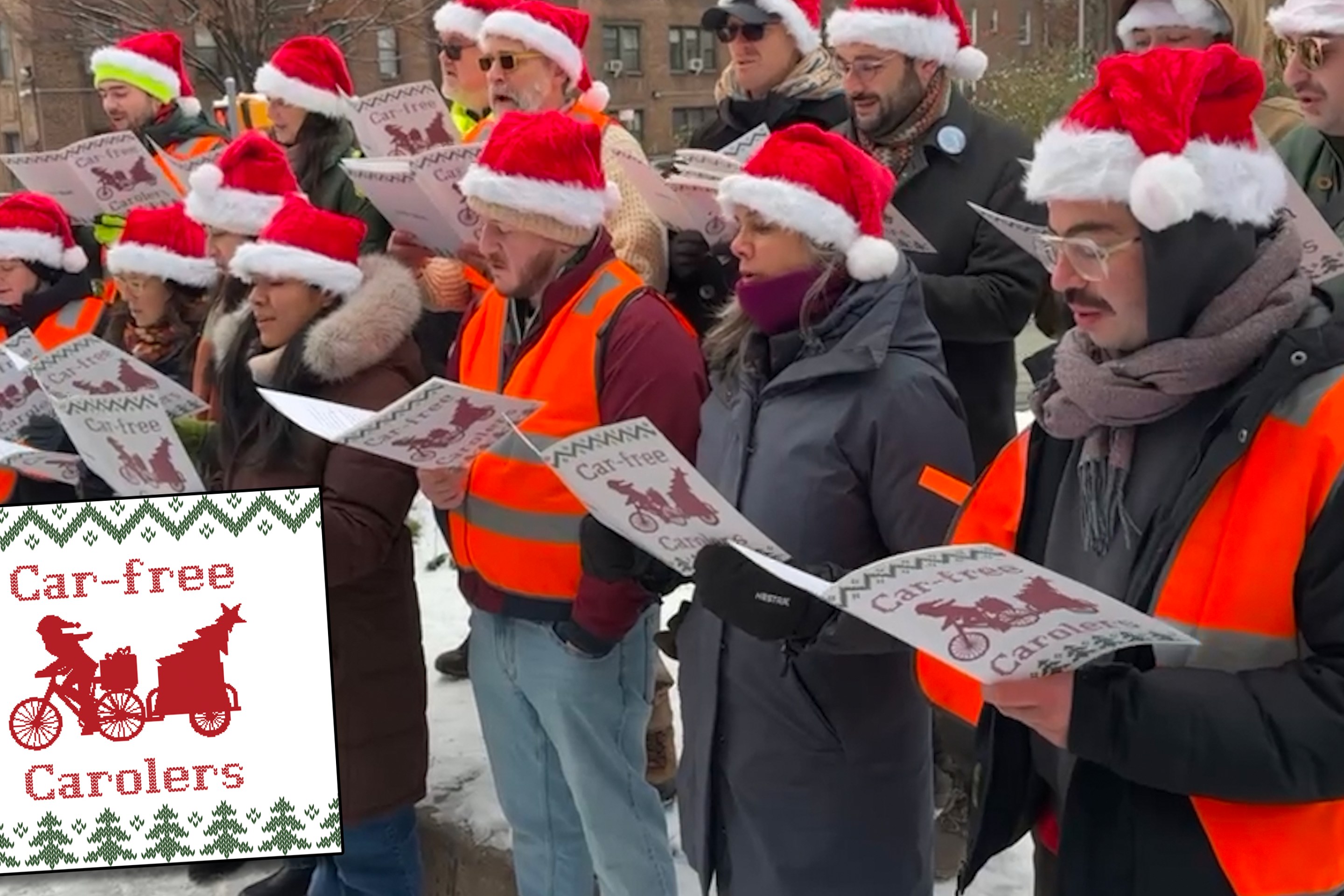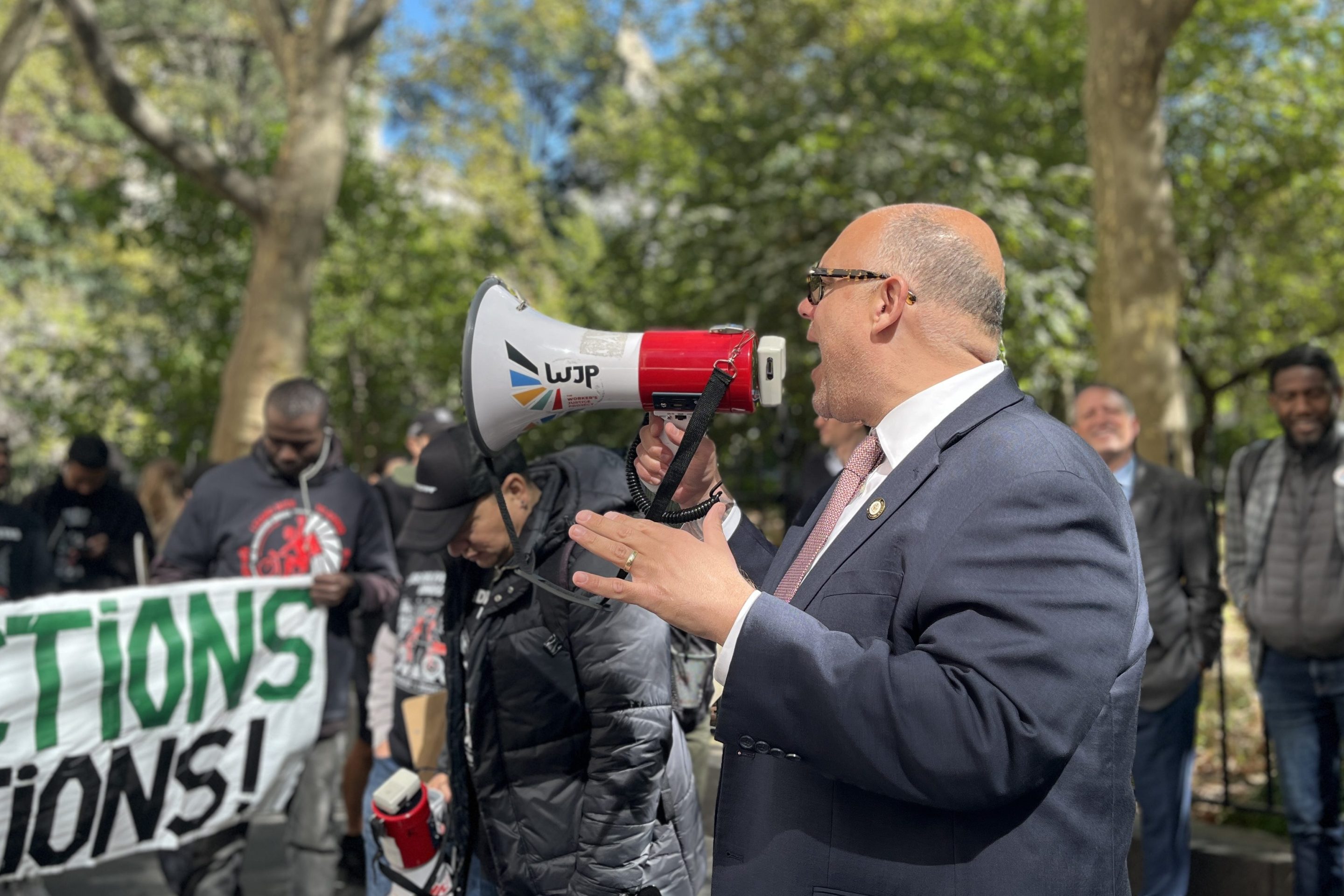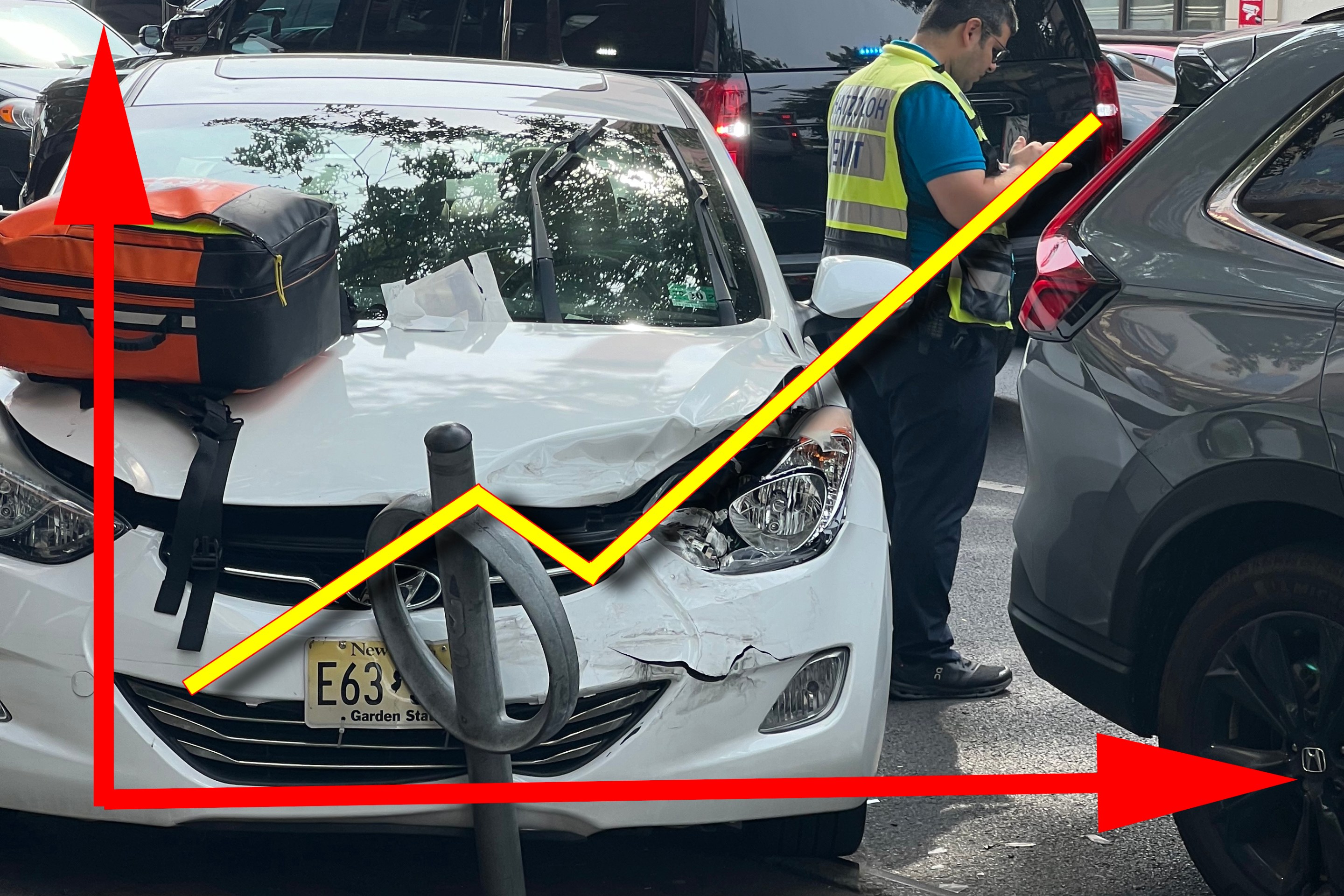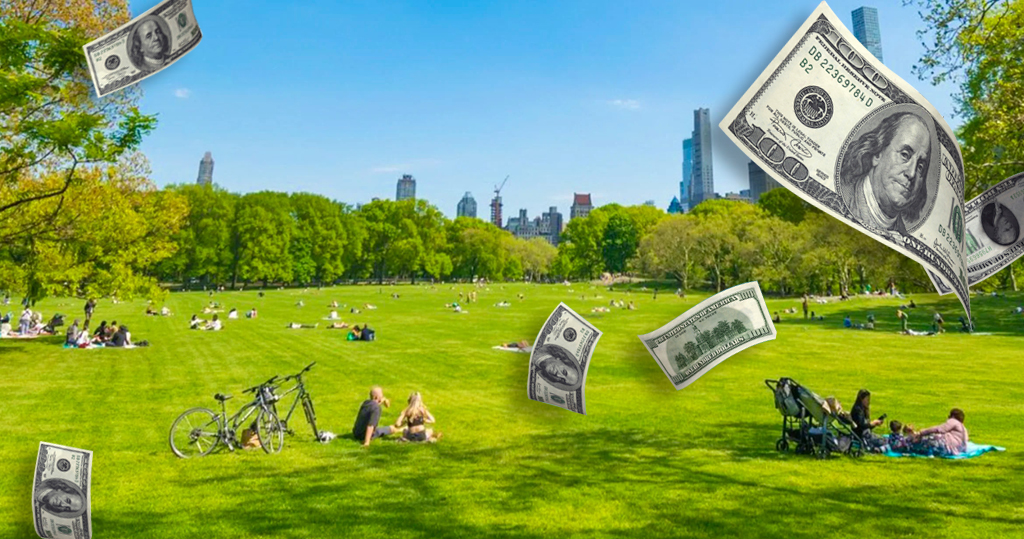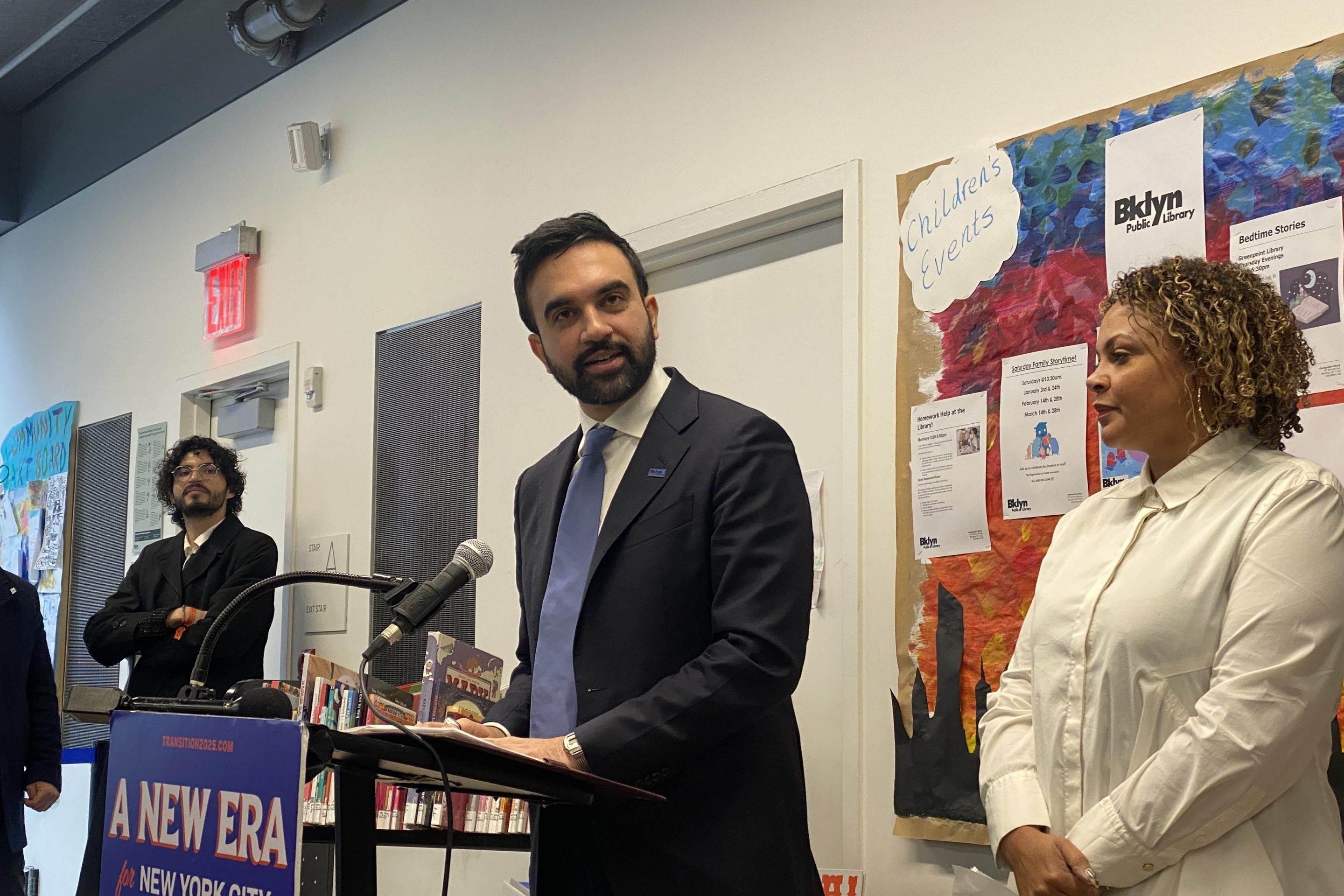We'll have more on the details of the MTA funding deal as they emerge. For now I'd like to focus on its most salient feature: The failure to impose new fees on car commuters, whose daily trips would slow to a standstill without a functional transit system.
Here's a taste of what New Yorkers can expect as a direct result. Neighborhoods will suffer from heavier traffic as more drivers opt to take free bridges. Bus riders will sit through slower rides and worse gridlock. Straphangers will absorb more of the cost of transit through higher fares. And the long-term health of the transit system will remain a big question mark.
We've emerged on the other side of the immediate crisis, but the big problems that led there in the first place are still staring us right in the face. To paraphrase Governor Paterson, responsibility has been shirked to live for another day.
I stole the title of this post from Mikhail Gorbachev, who saw the writing on the wall for the USSR in 1985. Like the Soviet empire in the 1980s, New York City's transportation system is groaning under the combined weight of skewed incentives and stale political leadership. Instead of bread lines, we have traffic jams and drivers cruising endlessly for parking spots. Like the special privileges handed out to Communist Party apparatchiks, we bestow our public servants with parking placards and toll perks. The Eastern Bloc had the Kremlin. We have Albany.
Which is where this analogy breaks down. No one in Soviet Russia ever voted for the Glasnost candidate. One day, the head of the Communist Party just decided that something had to change. Well, as we've witnessed over the last 12 agonizing months, a decision from on high won't get it done in New York, not as long as the Carl Krugers remain in Albany. You see where I'm headed. Like Aaron said back in March, reforming transportation policy is now, above all, an electoral project:
Sustainable transport advocates need to build political clout. Period. At this point, almost nothing else matters.
